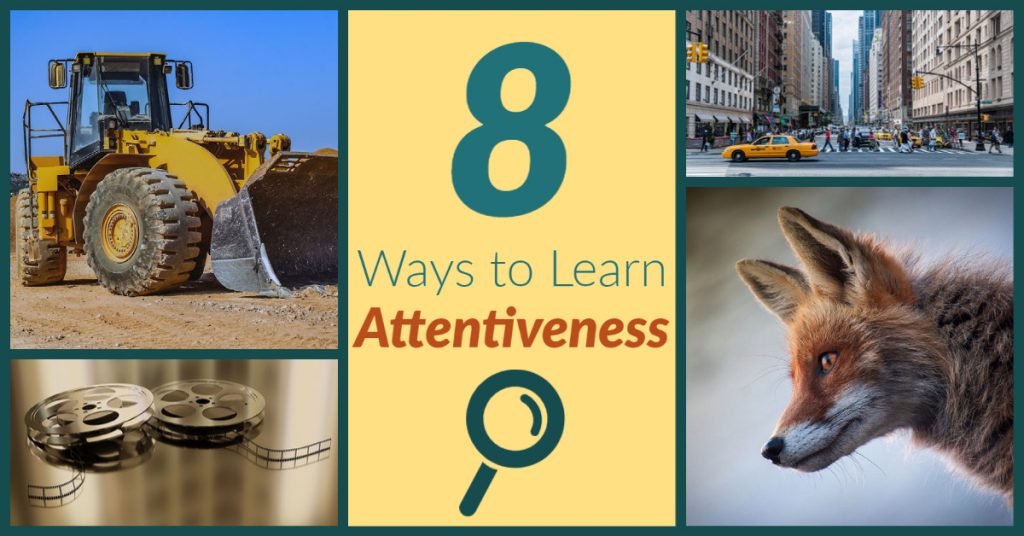8 ways to Learn About Attentiveness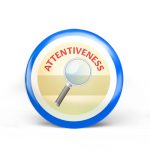
by Kerry Cordy
Learn about attentiveness through a variety of activities while earning your Attentiveness badge. The definition of attentiveness is the action of paying close attention to something. But what does this mean exactly? How can you increase your attentiveness in your daily life and what benefits does it bring? Paying attention to people shows we care. Paying attention to details helps to accomplish our goals faster and with accuracy. The most effective people are those who give their undivided attention to the people, problems, opportunities, and moments that come into their life. Wherever your attention goes, your mind follows. If you do not know how to be attentive, your mind will wander from here to there, and you will end up living a life full of distractions where little gets accomplished.
If you are working on your Attentiveness badge, here are 8 different activities to help you build this essential character trait. These activities can also be used to create an Attentiveness lesson plan.
- Listen with intention
- Observe the things around you
- Play a game of concentration
- Perform an “Attentiveness check”
- Watch a movie with subtitles
- Learn about the importance of attentiveness in various careers
- Learn how animals use attentiveness to survive
- Combat inattentiveness
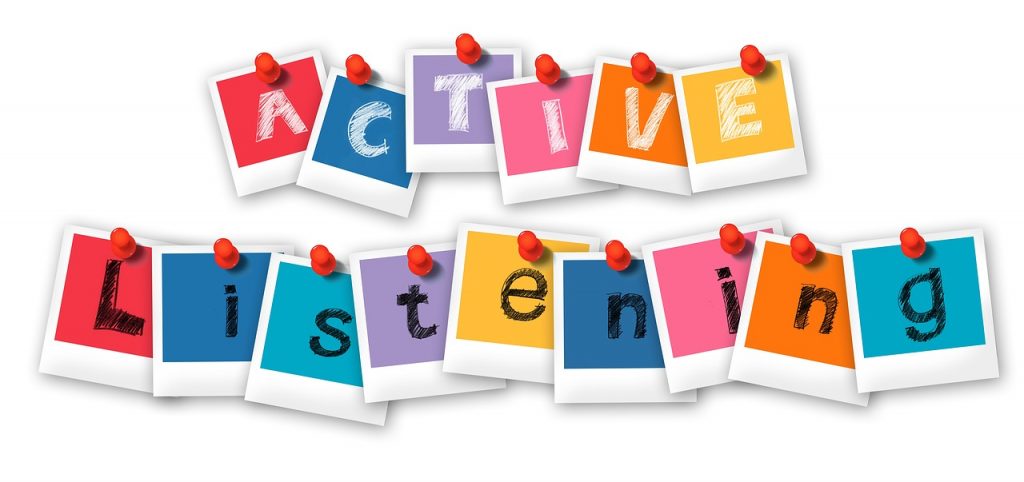
Listen With Intention
Have you ever been chatting with someone and your mind wanders? Suddenly you have lost track of the conversation and find yourself saying, “what?” Listening with full attention can be very difficult as our attention is taken by other thoughts or events. Try these exercises to help you stay attentive to one thing at a time while you listen.
Listening to People: Giving people your full attention while they are talking shows you care. Turn on the TV to something you enjoy and are interested in. Next, have a friend or family member tell you about their day for at least 5 minutes while the TV is on. Focus your attention solely on the conversation and try to block out the TV. At the end of 5 minutes, turn off the TV and have your friend or family member ask you details about what they told you. How much do you remember? How difficult was it to focus on the conversation when you were interested in the TV show?
Listening for Education: Sometimes we need to block out conversations and distractions around us in order to listen and pay attention to instructions or classes that are meant to educate us. In this exercise, reverse the process. Turn on something educational such as a documentary or podcast. Have a friend or family member tell you about their day for 5 minutes, but focus all your attention on what you are supposed to be learning. How much do you remember? How difficult was it to stay focuses on what you were supposed to be learning when someone was trying to distract you?
Listening with intention can help build your attentiveness. If a friend or family member is trying to talk to you, give them your full attention with no distractions. Turn off or turn down TVs and radios. Keep your mind on what they are saying and not on what you plan to have for dinner or what you might be doing later in the evening. If you are taking a class, give it your full attention. Learn to block out excess sounds and conversations and pay attention to the information you need.

Observe Things Around You
Observation is an important skill in building attentiveness. Demonstrate your ability to observe things around you. In times of war, crime, and emergencies, being attentive and having good observation skills become critical. Try the following exercise.
- Take a short walk and try to remember how many cars you saw, what color they were, what type, where they were parked, etc. How many details can you remember?
- Walk again and pay attention to the people you see. Were they male or female? What were they wearing? How old were they? How tall? What color hair did they have? What color eyes?
- Walk a third time and observe the buildings. How many stories were they? How many doors and windows did each one have? What color was the main buildings? What color was the trim? Did they have pitched roofs or flat?
Discuss why paying attention to details around you could be important in an emergency.

Play Concentration
Try playing a game or two that requires attention to details. Start with a game of Concentration. Concentration is a simple game, but in order to win, you have to give it your full attention. Shuffle a deck of cards and place the cards face down in 4 rows of 13 cards each. Take turns flipping over two cards at a time. If the numbers match, you keep the cards and go again. If they do not, your turn is over. The game ends when there are no more cards to flip over. The person with the most cards wins.
For older kids and adults, try playing an escape room game or visiting one in person if possible. Due to the time limit imposed on solving the puzzles in order to “escape” you must keep your attention focused at all time. Distraction means lost time which can cost you the game.
Visit Heart and Mind for a variety of fun action games to help boost attentiveness.
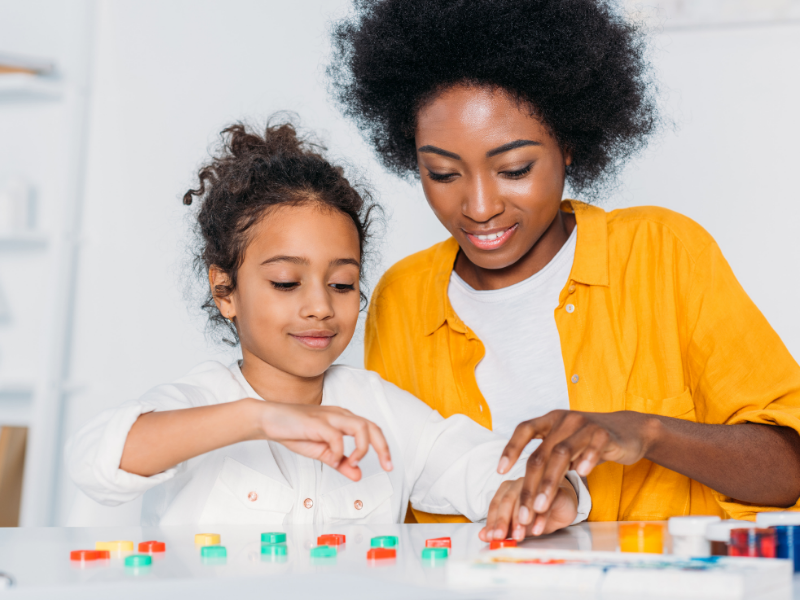
Perform an “Attentiveness Check”
Perform an “Attentiveness check” once a day for a week. When someone is giving you instructions on how to do something, do the following:
- Listen carefully and watch closely to what is being said/done.
- Correctly repeat/demonstrate back what you were told/shown.
By paying close attention to instructions the first time, you will avoid mistakes and wasted time. At the end of the week have you noticed that it is getting easier to focus your attention on instructions when you deliberately stay attentive?

Attentiveness in Careers
Nearly every career requires attentiveness in at least some capacity, but in some careers attention to details can mean the difference between life and death. Make a list of at least 10-15 careers that that require your full attention and discuss what could happen if your attention wanders. Here are a few career ideas to get you started:
- air traffic controller
- surgeon
- lineworker
- structural engineer
- heavy equipment driver

Movie Subtitles
My family had a German foreign exchange student live with us and while she spoke English, she would always put the subtitles on TV so help her focus on what was being said. My oldest daughter discovered that subtitles helped her pay attention as well even though English was her first language and she watches TV with subtitles still as an adult. Watch a foreign movie in which you must read subtitles. How difficult was it to stay focused for the whole movie? Can you remember most of the details of the story? Now watch a movie in English with the subtitles turned on. Did you find that you paid closer attention to the movie when the subtitles were there to read or did they distract you? Discuss how subtitles can help you focus your attentiveness.
Animal Attentiveness
If you own a cat, you have seen how intent they become when their attention is focused. When stalking something, whether a mouse outside or a laser pointer on the ground, they give their full and undivided attention to hunt. Attentiveness in animals helps them stay alive. Whether that focus is on catching a meal or avoiding becoming one, you can see attentiveness displayed in animals of all varieties. Make a list of animals, including at least one from each of the following areas:
- mammals
- reptiles
- amphibians
- birds
- insects
- fish
If possible watch your animals in action either in real life, or on a video. Compare the differences between how humans are attentive with one another and our surroundings, and how attentive animals are. What senses do animals use to focus their attention? How does that attention help them survive. Use the video below as an example. Watch how the deer constantly looks and listens to what is going on around it.
Combat Inattentiveness
Divide a piece of paper into two sides. On one side, list words that describe being attentive, such as aware, focused, listening or observant. On the other side, make a list of words that describe what being attentive is not, such as distracted, inconsiderate, or careless. Come up with solutions to combat the ways in which we can be inattentive such as taking notes during a class or leaving your phone in the other room when having dinner with friends or family. How many different ways can you come up with to combat inattentiveness and refocus your attention on what is important?
Follow our Facebook page for daily badge of the week resources. For planning purposes you can see which badges will be featured on our badge of the week calendar.

